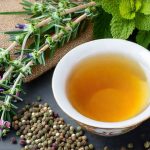The sensation of needing to rush to the bathroom – frequently, urgently, even painfully – is incredibly disruptive to daily life. For many, this isn’t an occasional inconvenience; it’s a chronic condition stemming from what’s often called “overactive bladder” (OAB) or related bladder sensitivities. While conventional medical treatments are available and effective for some, there’s growing interest in complementary approaches – specifically, whether simple herbal teas can offer soothing relief. This exploration isn’t about replacing established healthcare but rather looking at the potential of gentle, natural remedies to help manage symptoms alongside existing treatment plans, or as a first line of investigation for those with milder concerns.
Bladder health is complex and influenced by many factors, including hydration levels, diet, stress, and even hormonal changes. The urge to urinate isn’t just about how full your bladder is but also about how your brain perceives that fullness. This perception can be heightened in individuals with OAB or interstitial cystitis (IC), leading to frequent urination even when the bladder isn’t significantly full. Herbal teas, therefore, aren’t necessarily targeting the physical capacity of the bladder itself, so much as aiming to calm the nervous system, reduce inflammation, and potentially influence those neurological pathways that contribute to urinary urgency. Considering how stress impacts these systems, it may be helpful to explore if can stress medications help with bladder symptoms.
Understanding Bladder Symptoms & Potential Herbal Support
The umbrella term “overactive bladder” encompasses a spectrum of symptoms. These can range from frequency (urinating more than eight times in 24 hours), to urgency (a sudden, compelling need to urinate that’s difficult to defer), and urge incontinence (leakage associated with the urgent sensation). Interstitial cystitis, a different but often overlapping condition, involves chronic bladder pain and pressure. Identifying which symptoms are most prominent is crucial when considering herbal remedies; what works for frequency might not address pain effectively. Many herbs traditionally used for calming the nervous system or reducing inflammation may offer some degree of support. For example, chamomile – well-known for its relaxing properties – isn’t directly targeting the bladder, but by easing anxiety and promoting relaxation, it could help reduce the overall stress that exacerbates urgency. Similarly, anti-inflammatory herbs like ginger might indirectly assist those with IC symptoms related to bladder irritation.
It’s important to note that research specifically on herbal teas for bladder health is limited. Much of the evidence comes from traditional medicine practices and anecdotal reports. However, this doesn’t invalidate the potential benefits; it simply underscores the need for more rigorous scientific investigation. When exploring herbal teas, choosing high-quality sources and being mindful of any existing medical conditions or medications is paramount. Some herbs can interact with pharmaceuticals, so consulting with a healthcare professional before introducing new supplements – including teas – into your routine is essential. Furthermore, self-treating severe bladder symptoms without seeking medical evaluation could delay proper diagnosis and treatment. It’s also important to be aware that can herbal teas irritate the bladder in some individuals.
Popular Herbal Teas & Their Potential Benefits
Several herbal teas have garnered attention for their potential to support bladder health, though it’s vital to remember that individual responses can vary significantly. Chamomile tea, as mentioned earlier, is often recommended for its calming effects. Its gentle nature makes it a good starting point for those exploring herbal remedies. Cornsilk tea has historically been used in traditional medicine to soothe the urinary tract and reduce inflammation; some preliminary research suggests it might help with OAB symptoms, but more studies are needed. Parsley tea, surprisingly, is also sometimes suggested—not because of its calming properties, but due to parsley’s mild diuretic effect which can aid in flushing out the urinary tract (though this should be approached cautiously and avoided by those prone to dehydration). Finally, ginger tea may offer relief from inflammation associated with IC.
However, it is crucial to avoid teas that are known bladder irritants. These include caffeinated beverages (coffee, black tea, green tea), alcohol, citrus juices, and artificially sweetened drinks. Even seemingly innocuous herbal teas should be evaluated; for example, dandelion root tea has diuretic properties which may not always be helpful in managing bladder issues. It’s best to start with one new tea at a time and carefully monitor your body’s reaction. Keep a symptom diary noting any changes – positive or negative – after introducing a new tea into your routine. This will help determine what, if anything, is providing relief without exacerbating symptoms. If you are prone to infections, it may be wise to explore can herbal teas help prevent UTIs.
Exploring Specific Herbal Remedies in Detail
- Chamomile: Beyond relaxation, chamomile contains compounds with anti-inflammatory properties that could potentially soothe bladder irritation. It’s best to choose organic chamomile tea and steep it for a sufficient amount of time (5-10 minutes) to extract the beneficial compounds.
- Cornsilk: Though research is limited, some studies indicate that cornsilk may help strengthen bladder muscles and reduce urinary frequency. However, individuals with kidney problems should avoid cornsilk as its diuretic effects could exacerbate their condition.
- Ginger: Ginger’s anti-inflammatory properties might be helpful for those experiencing bladder pain associated with interstitial cystitis. It’s important to note that ginger can also have a mild blood-thinning effect, so caution is advised if you are taking anticoagulant medications.
Hydration & Tea Consumption: A Delicate Balance
Maintaining adequate hydration is essential for overall health and plays a crucial role in bladder function. However, too much fluid can worsen OAB symptoms. The key is finding the right balance – enough to keep your urinary tract healthy without overstimulating your bladder. Herbal teas contribute to your daily fluid intake, so it’s important to factor that into your overall hydration plan. Sipping on small amounts of tea throughout the day may be more beneficial than drinking large volumes at once.
Consider timing your tea consumption strategically. For example, avoiding tea (and other fluids) a few hours before bedtime can help reduce nighttime urination. Additionally, pay attention to how different teas affect you specifically. Some individuals might find that chamomile tea is soothing and doesn’t increase their urgency, while others may experience the opposite effect. This is where personalized experimentation and careful observation are vital. Thinking about daily timing of herbal teas for bladder peace can help refine your routine.
The Importance of Holistic Support & Professional Guidance
Herbal teas can be a valuable component of a holistic approach to bladder health, but they should never be considered a cure-all. Addressing underlying factors such as stress, diet, and lifestyle habits is equally important. Stress management techniques like yoga, meditation, or deep breathing exercises can help calm the nervous system and reduce urinary urgency. Dietary modifications – avoiding bladder irritants like caffeine, alcohol, spicy foods, and acidic fruits – can also make a significant difference.
Most importantly: consult with a healthcare professional before self-treating any medical condition, including bladder issues. A doctor can accurately diagnose your specific condition, rule out other potential causes of your symptoms, and recommend the most appropriate treatment plan. Herbal teas can be discussed as part of that plan, but they should always be viewed as complementary support rather than a replacement for conventional medical care. Remember, managing bladder health is often about finding what works best for you, through informed choices and collaborative partnerships with healthcare providers.





















